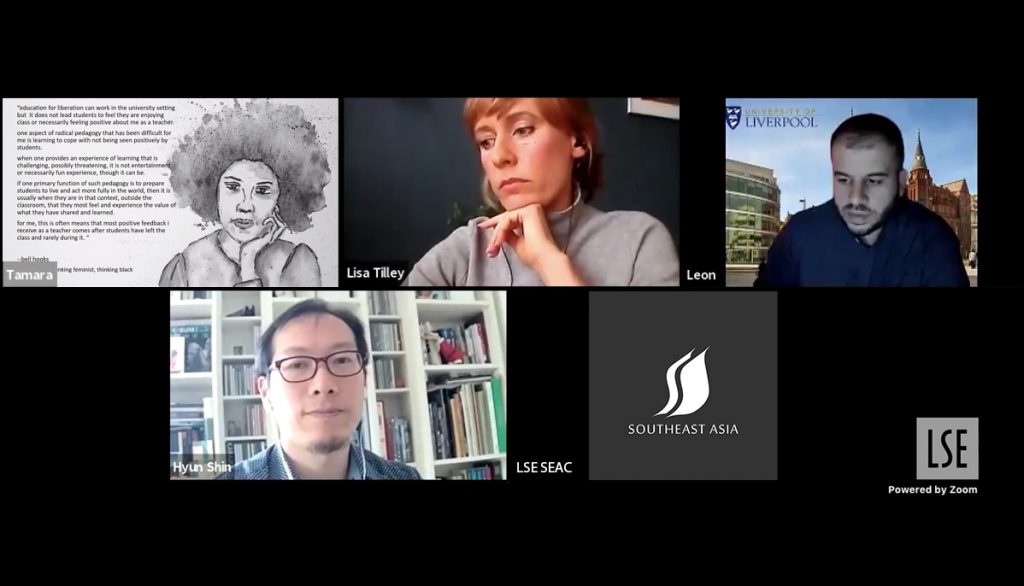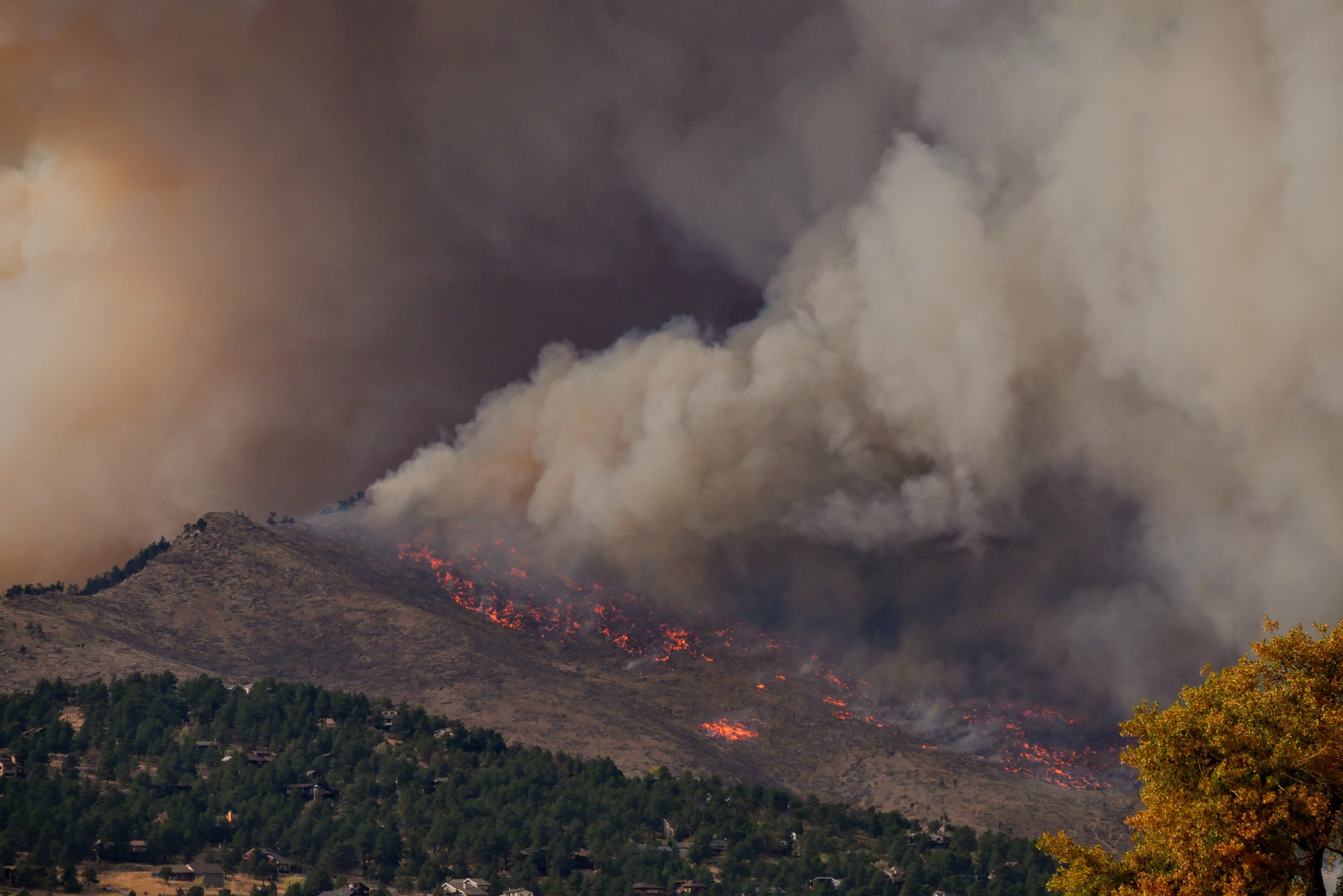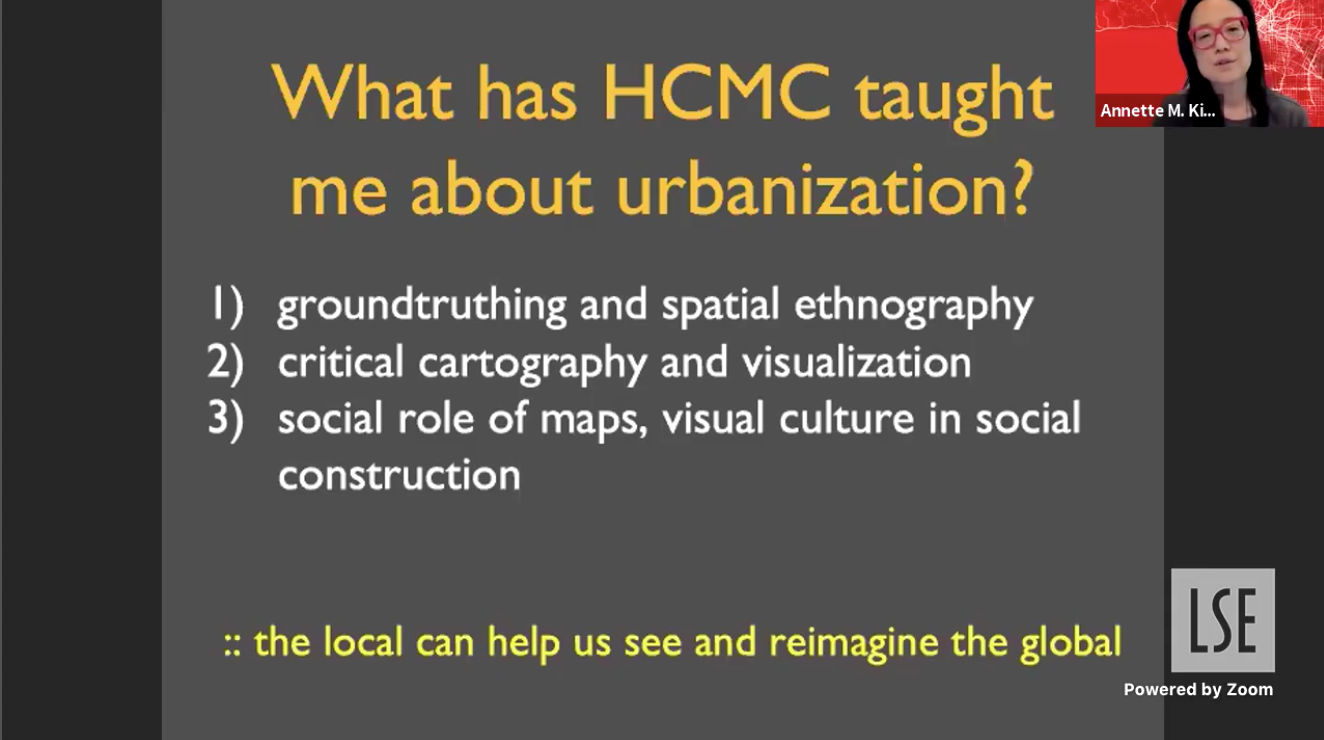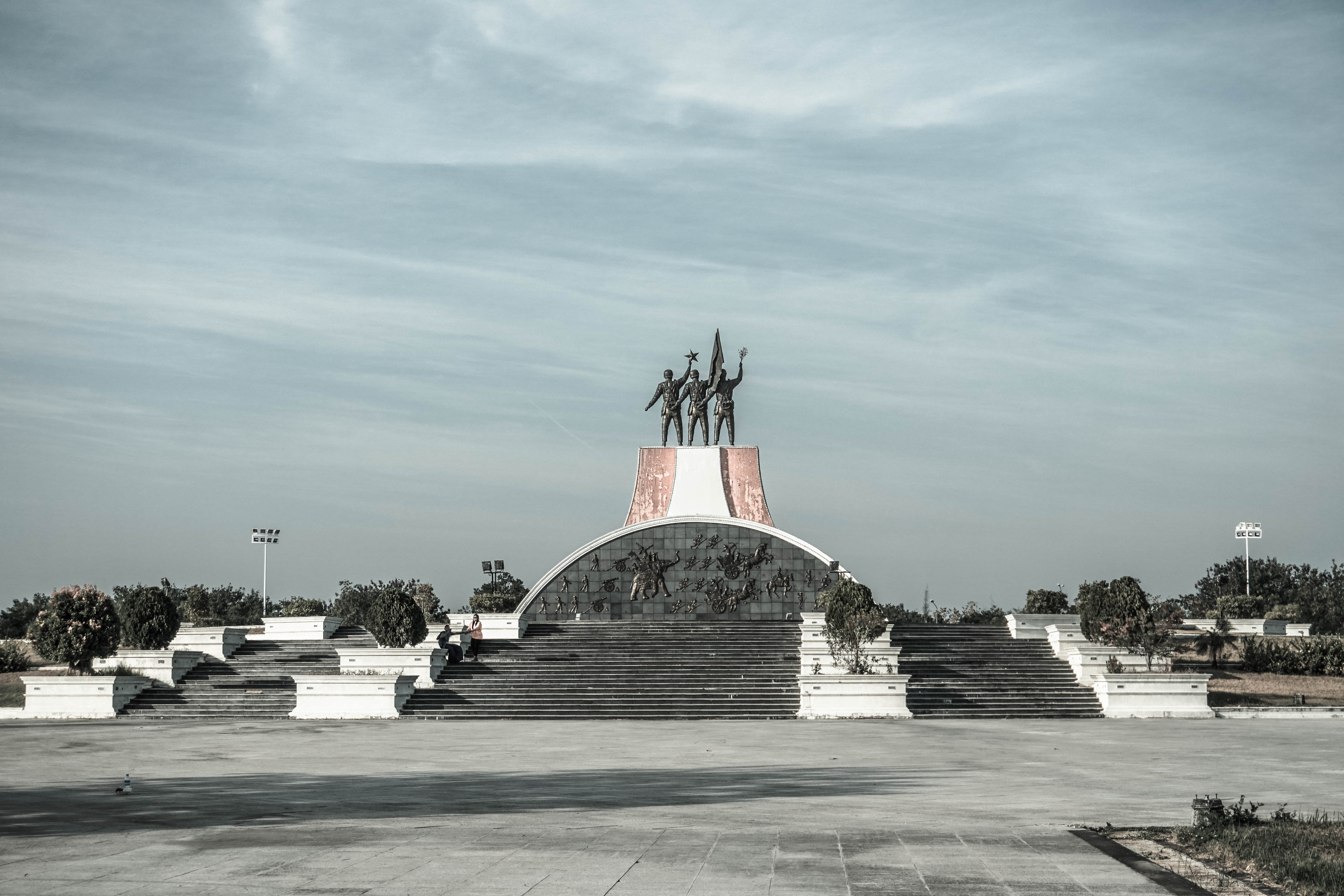The “Decolonising Higher Education Roundtable Discussion” held on 7 October 2020 was the launching event of the academic year for the SEAC Seminar Series. The purpose of the roundtable, Prof. Hyun Bang Shin (Director of SEAC) said in his opening remarks, was to consider the emergence and growth of an intellectual initiative across the global North that aims to “decolonialise” higher education and the university, and the potential limitations of these efforts.

The first speaker, Dr Leon Moosavi (University of Liverpool) presented his recent article “The decolonial bandwagon and the dangers of intellectual decolonization“, published in the International Review of Sociology. After stressing that decolonisation is a term with a plurality of definitions, Moosavi called for caution in how academics take up the task of decolonialisation, in order to avoid a number of potential pitfalls. One risk, for example, would be to reify the “Global South” as a distinct social or spatial category. In recent decades, these categories have been increasingly deployed less as shorthand for a spatial unit, and more as an analytical category or vantage point. Nonetheless, there is the risk that engaging with these concepts reinforces a binary view of the North/South, resulting in reifying the apparent differences and distinctions between them.
A second risk of the enthusiastic uptake of decolonisation relates to North-South power relations. Moosavi argued that scholars in the global North who “claim to be at the forefront of decolonialisation are often in fact “ignoring how that work has been discussed for decades in global South scholarship.” At best, this produces scholarship that erases the work of scholars in the global South; at worst, this constitutes a new form of cooptation and coloniality.
This latter point regarding the socio-spatial positioning of scholars was taken up by the second speaker, Tamar Soukatta (PhD Candidate at the International Institute of Social Studies of Erasmus University). She described in her talk how she found her training in quantitative methods and a tradition that viewed research as objective to be fundamentally at odds with her own embodied experience of fieldwork, as the distinction between researcher and subject began to blur. Finding herself emotionally involved and deeply invested in her research on the Maluku conflict in her own community in Indonesia, Soukatta described how she came to question the legitimacy of her research given her inability to remain neutral and removed. Having now worked through these epistemological challenges, Soukatta argued that decolonisation can be a powerful tool for scholars of the global South. Meanwhile, scholars in the global North may be engaging with this concept at a distance and from a position of relative power. This Soukatta flagged as deeply problematic. Moosavi also noted that much of the work on decolonisation is far removed from the realities of people’s everyday lives, remains inside the confines of the ivory tower, and uses language that is highly inaccessible to the public.
One of Soukatta’s central points was that theories of decolonisation are largely meaningless if they are not connected to praxis. Most students, she observes, do not go on to spend their lives in spaces of theory and knowledge production. “They all”, however, “live within the real world”. She spoke of her role as a teacher and using the classroom as a “political stage” to decentre those who are typically marginalised. She also noted the difficulty of playing this role, referencing bell hooks who wrote: “education for liberation can work in the university setting, but it does not lead students to feel they are enjoying class or necessarily feeling positive about me as a teacher”. As a white scholar working at an American institution, I took from her talk a greater appreciation for the different barriers that scholars from the global South and teachers of colour working in the global North may encounter when they orientate their pedagogy toward transformations and liberation. Biases against faculty of colour, for instance, have already been widely documented in student evaluations of their course instructors in Canada and the US.
Picking up Soukatta’s orientation toward the “real world”, Dr Lisa Tilley (Birkbeck, University of London) explored how scholars in the global North might engage in decolonisation praxis. University resources, she said, could be “put to work to de-censor” scholars and scholarship from the global South. Such efforts, Tilley argued, would help to disrupt existing hierarchies in academia and dismantle the problematic structures of publishing that work to actively exclude and marginalise scholarship from outside North America and Europe. Tilley identified several tactics that (white) scholars in the global North might engage, such as platforming scholars from the global South, promoting their scholarship and texts, assisting with publishing, or editing special issues that prioritise researchers from the global South. You can read about her own efforts to collectively decolonize the university via course syllabi here.
Reflecting on the webinar, which attracted viewers from across Asia, Europe and North America, I wondered if Covid-19 presents an unexpected opportunity to take up this task. With more online conferences and talks, scholars from the global South might be hosted by institutions in the global North or invited to participate in major conferences that might otherwise be prohibited due to the required financial and time resources to travel internationally during the academic year. Putting to one side the problematic colonial hangover that gives academics writing in English enormous privilege over those who do not, we might also consider how the academy, particularly academic journals, could invest in material resources to support translation. Such practices would enable scholars writing in other languages to have their work more widely read.
The talks and ensuring discussion raised fundamental and difficult questions about how to pursue decolonisation from our respective socio-spatial positions. What roles ought (white) scholars from the global North and scholars of the global South play in efforts to decolonise higher education? As Dr. Lisa Lau (Keele University) commented during the discussion, there is a kind of dark irony of emergent efforts to decolonise academia from the very same “heartlands of empire”, especially when these conversations have been had elsewhere for decades. Yet, would a lack of engagement with the concept of decolonisation be interpreted, or have the same impact, as silence? This also begs the question of what role globally recognised institutions like LSE and SEAC, that attract students and staff from around the world, should play. Furthermore, where does this discussion leave scholars from the global South working in northern institutions, and vice-versa? Like there are no hard and fast answers to the question “what is decolonisation?”, the answers to these questions are not straightforward. Yet, the roundtable laid the groundwork for scholars to begin to engage with these questions, consider the different arguments and perspectives, and decide for themselves how to take action.
* This post is based on ‘Decolonising Higher Education’ roundtable, held on 30th September 2020 as part of SEAC Seminar Series. You can access a podcast of the roundtable here.
* The views expressed in the blog are those of the authors alone. They do not reflect the position of the Saw Swee Hock Southeast Asia Centre, nor that of the London School of Economics and Political Science.





